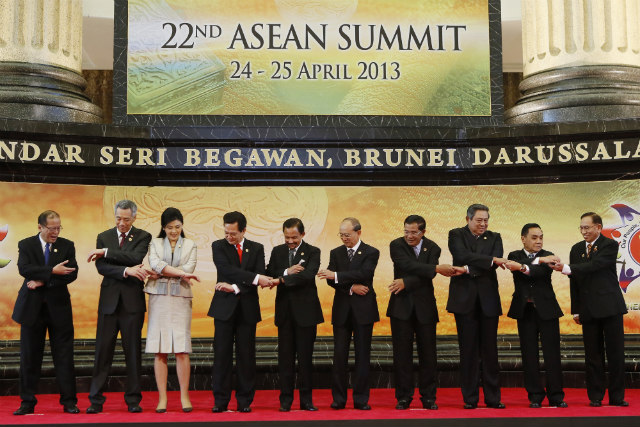SUMMARY
This is AI generated summarization, which may have errors. For context, always refer to the full article.

MANILA, Philippines – In 2012, a Chinese daily denounced President Benigno Aquino III as “rude” for bringing up the Philippines’ maritime dispute with China in an Association of Southeast Asian Nations (ASEAN) meeting in Cambodia.
Back then, Aquino belied Cambodian Prime Minister Hun Sen’s claim that the regional bloc has agreed not to “internationalize” the South China Sea dispute. Aquino added the Philippines “has the inherent right to defend its national interests when deemed necessary,” according to Foreign Secretary Albert del Rosario.
READ: Aquino disputes Hun Sen claim on China row
Reacting to Aquino, the state-run China Daily said in an editorial dated November 23, 2012: “When Cambodia, this year’s ASEAN chair, said at a meeting on Monday that the bloc had agreed not to ‘internationalize’ the rifts, it was very rude of Philippine President Benigno Aquino III to interrupt and rebuke Cambodian Prime Minister Hun Sen, alleging that no such consensus had been reached and he would continue to speak out on the global stage.”
This year, Aquino attends the 23rd ASEAN Summit in Brunei on October 9 and 10. Will he issue stinging words on the maritime dispute again?
The Department of Foreign Affairs (DFA) on Wednesday, October 2, declined to confirm if Aquino will specifically raise the Philippines’ dispute with China over the Scarborough (Panatag) Shoal at the ASEAN Summit. “I would not want to preempt the President if he wants to make specific interventions on those,” DFA spokesman Raul Hernandez said in a press briefing.
Hernandez, however, said the Philippines supports “the maintenance or the management of maritime issues,” which is one of the priorities of the current ASEAN chair, Brunei.
“That will be discussed in the ASEAN Summit, and we will maintain our position that the issues in the South China Sea should be resolved peacefully and through a rules-based approach under the UN Convention on the Law of the Sea,” Hernandez said.
China is likely to criticize the Philippines if it brings up their dispute at the summit. The rising superpower detests the “internationalization” of the South China Sea dispute.
READ: China to ASEAN: ‘No to internationalization’ of South China Sea dispute
The Philippines, however, has defended its decision to take up the dispute in international venues. The most striking example is its unprecedented case against China over the maritime row.
READ: PH-China dispute ‘acid test’ for int’l law
Chinese blocks in Panatag?
The Philippines and China have fought over portions of the South China Sea, believed to be rich in gas and oil deposits.
Recently, the reported installation of Chinese blocks in Panatag has reignited tensions between the two countries.
The Philippines said China has installed these blocks that is described as a “prelude to construction.” China, on the other hand, has denied the Philippines’ claim.
READ: China denies ‘concrete facilities’ in Panatag
In September, Del Rosario said the Philippines will file a protest against China over these installations.
READ: DFA: Chinese construction to bolster PH case
On Wednesday, Hernandez said the Philippines has not filed a protest so it can focus on two other concerns: the “expeditious conclusion” of the Code of Conduct on the South China Sea, and the Philippines’ arguments in its arbitration case against China, due on March 30, 2014.
While the case is ongoing, the maritime dispute has affected other aspects of the Philippines and China’s relationship.
In September, Aquino cancelled his scheduled trip to China after the host country set “unusual” conditions.
READ: Aquino rejects ‘unusual’ conditions for China trip
Hernandez said in September: “There were subsequent concerns and conditions for the President’s attendance, and such conditions were absolutely inimical to our national interest. To avoid embarrassment on the Chinese side, we will not state these conditions, but you may wish to address this specific question to Her Excellency Ambassador Ma Keqing.”
He added, “The President stood firm in the defense of the country’s national interest.”
In July, Del Rosario invited his Chinese counterpart, Wang Yi, to visit the Philippines.
READ: PH invites China after ‘testy’ exchanges
Hernandez on Wednesday said the Philippines has not received a “formal reply.” “So the invitation is standing, yes.” – Rappler.com
Add a comment
How does this make you feel?
There are no comments yet. Add your comment to start the conversation.